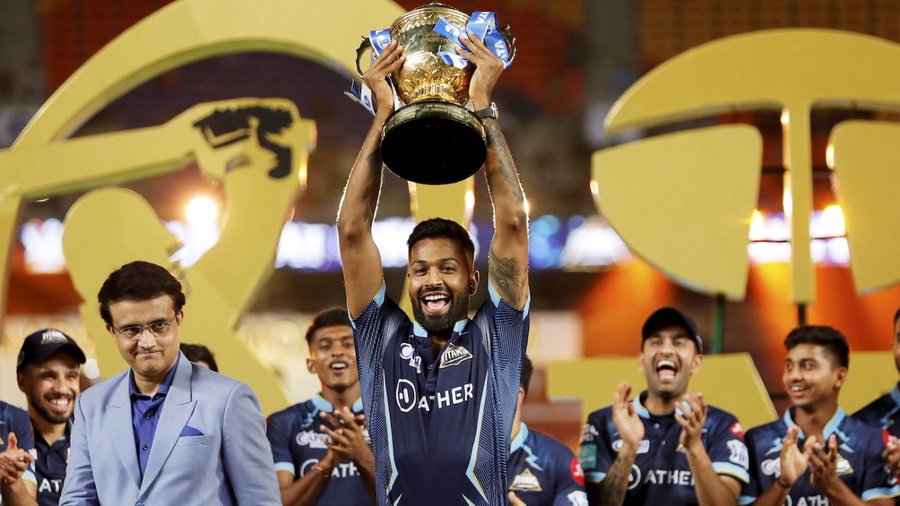Cricket’s future is destined to be franchises at the moment, the only question is WHEN
ICC's latest FTP seems to have provided solace to those gunning for international cricket's survival, considering the increased number of games and no windows for leagues. However, these plans appear to be superficial or worse, forced, and it is high time ICC recognises the sport's changing trends.

With the International Cricket Council finally releasing the Future Tours Program amidst much anticipation, the debate around international cricket and its scheduling has been reignited once again. Contrary to what was reported and expected, the comprehensive plan did not contain any windows for franchise cricket tournaments like the Indian Premier League and The Hundred. In fact, the number of international matches has actually increased from the previous cycle, thus invoking great hope for international cricket’s future.
However, as far as I can see, the plan has not done much to subdue the fear of franchises taking over. At the end of the day, the three components that dictate the future of the sport are the players, the fans and consequently, the money. All of which are catered to by franchise cricket. Let’s ask then, what if they did take precedence? What if cricket was structured like European football where international cricket was indeed the exception instead of being the norm? Here is a thought experiment aiming to simulate a flipped scenario of the present cricketing landscape and see if the sport is capable of working that way.
First, time to establish a basic structure for such a scenario. One can expect a franchise season lasting seven to eight months, with multiple annual national franchise leagues running simultaneously. There would be an international club tournament like the Champions League, where qualification would be deemed by coefficient points awarded as per the performance of the clubs in the competition after initial qualification spots are allotted as per the ICC ranks of national teams.
The leagues and franchises will continue to make money as they are doing now, through sponsorship and broadcasting deals. Players would be centrally contracted to franchises and play international games on a match-fee basis. There would be two windows of international cricket: the winter window around December in the middle of the season, and the summer window around July at the season’s end. Major ICC events would take place every year in the summer window, with qualification matches for the same to take place in the winter windows.
Now, why does such a format work out for football but cannot for cricket? To begin with, cricket is perhaps the only global sport apart from chess to have such varied formats, each of which is held on an equal footing in the modern game. With franchise cricket taking over, players will only be developed keeping T20s in mind. Impetus will slowly be lost on first-class and even one-day cricket, while even domestic cricket will die out because their role in spotting and developing talent would be extinct.
Similarly, it would be impossible to juggle three international formats in the space of just two windows across the entire year. Unlike most sports that span a few hours, Test matches take up five entire days and are extremely toiling for the players. Consequently, there would no longer be any marquee event as such for Tests, meaning the format will eventually grow irrelevant and die out. Long tours are and have always been the core of international cricket, the storylines they provide through a variety of conditions despite the competitors remaining the same is what makes cricket so unique. Every pitch, every weather condition, and every match is different, especially when it comes to the longer format of the game.
Parimatch
Explore Parimatch review and find out what the best India cricket betting bookmaker is capable of!
Find OutAdditionally, less than 20 countries play cricket at a high level as compared to 55 UEFA nations. In fact, only the top eight have proved worthy of providing competitive matches while the rest are perpetual underdogs light years away from those at the top of the charts. There could be no better evidence than the ongoing series between India and Zimbabwe where the visitors are simply tearing apart the African outfit in unfamiliar conditions with a second-string side. Thus, only the top three countries will be able to put up a high-level league owing to a sufficient pool of domestic players, while the rest will simply be inferior in quality and struggle for viewership as well as survival.
At the same time, the lower ranked nations will be starved of international cricket, effectively resigned to try and develop players for foreign leagues but without any proper mechanism to do so anymore. Even presently, the ICC revenue-sharing model works such that the richest cricketing federations are bestowed with the most money while countries which need wealth to develop their institutes are left hanging. In a model where franchises are given priority, even the bottom half of the Test-playing nations will start producing a much inferior quality of cricket.
Then there is a whole set of other issues arising out of the Board of Control for Cricket in India’s firm grip on the sport on a global scale. Firstly, they have strict regulations against sending their own players to other leagues, preserving all their talent for themselves. Considering the country provides the largest pool of players, as well as an audience for the sport, the continuance of such restrictions, would make it impossible for simultaneous leagues to function across the world. Secondly, players from another hugely populated country, Pakistan, would not be allowed to compete in leagues where BCCI or their offsprings have a controlling stake. The same is already visible in leagues such as the one being propagated by Cricket South Africa, where Pakistani cricketers are struggling for admissibility. Such a mechanism would simply defeat the whole point of the so-envisioned structure.
The only positive thing of such a model would be that franchises have major incentives to invest in player development, thus bringing more money into the game. More young players would get opportunities to prove themselves and play a higher level of cricket from a younger age. There would be increased dynamism in the sport due to player transfers between franchises, and perhaps better storylines because of the higher number of teams competing in an annual international competition.
The overarching point is that the ICC cannot continue to force international cricket when there are clear issues surfacing against the present cricketing structure. There is no point in having an increased number of international games when eventually fans start tuning out from the same, as do the players in the search of better financial opportunities with franchises. A case in point is Trent Boult, with many more bound to follow in the coming FTP cycle.
Thus, the direction cricket seems to be heading in clearly places franchises at the top of the food chain and seems bound to sacrifice one day cricket at the very least, if not first-class cricket as well eventually. It is just a question of whether the transformation takes place organically or is induced artificially. If the ICC fails to take cognizance of this changing trend in the sport and tries to force its own way then the results could be disastrous, especially for the lower-ranked nations. The organization’s motto of making cricket more global would be reduced to no more than a gimmick and it is time the council takes coordinated steps with all the leading stakeholders in the game to lead cricket to a better place.
Money makes the wheels turn at the end of the day, and T20s is where it is at be it domestically or internationally. ICC needs to make a decision whether it wants to intervene and ensure the survival of all forms of cricket or play a passive role in allowing their extinction, which is the choice it seems to have already made.

Comments
Sign up or log in to your account to leave comments and reactions
0 Comments